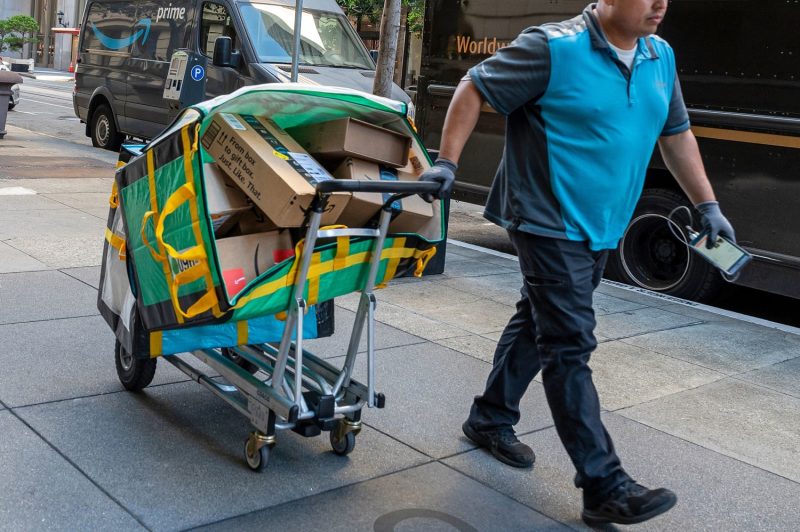In a recent turn of events, the giant e-commerce entity Amazon is facing legal action over accusations of excluding certain neighborhoods from its Prime delivery services. The District of Columbia Attorney General has filed a lawsuit against Amazon, highlighting the alleged discriminatory practices that prevent residents in underserved areas from accessing the benefits of Amazon Prime.
The lawsuit outlines the disparities in service provision, pointing out that predominantly black neighborhoods are disproportionately affected by this exclusion. By limiting Prime delivery options in these areas, Amazon is accused of perpetuating inequalities and hindering access to essential goods and services for residents who rely on online shopping.
This legal action sheds light on a broader issue of digital divide and systemic inequalities that persist in many urban areas across the United States. The lack of equitable access to essential services, such as fast and reliable delivery options, further marginalizes communities that are already underserved and deprived of resources.
Amazon’s Prime service has been widely lauded for its convenience and efficiency, offering subscribers fast and free delivery on a wide range of products. However, the discriminatory exclusion of certain neighborhoods from this service raises questions about the company’s commitment to serving all customers equally.
The lawsuit filed by the D.C. Attorney General seeks not only to hold Amazon accountable for its alleged discriminatory practices but also to push for systemic changes that promote fairness and inclusivity in service provision. By challenging these practices, the legal action aims to address the underlying disparities that contribute to the economic and social marginalization of certain communities.
It is essential for companies like Amazon to recognize their responsibility in ensuring equitable access to services and opportunities for all customers, regardless of their zip code or neighborhood. By addressing these issues proactively and working towards more inclusive practices, businesses can contribute to creating a more just and equitable society.
In conclusion, the legal action against Amazon serves as a reminder of the ongoing challenges of inequality and discrimination in service provision. By holding companies accountable for their practices and advocating for systemic changes, we can work towards a more equitable and inclusive future for all members of society.

